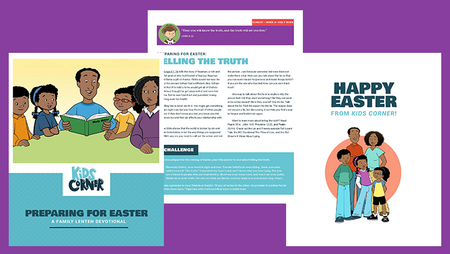
Confessions Within Relationships
Bible Verse
4 Love is patient and kind, never jealous, boastful, proud, or 5 rude. Love isn't selfish or quick tempered. It doesn't keep a record of wrongs that others do. 1 Corinthians 13: 4-5
Confession is a tough gig no matter which side of it you are on. Can you remember as a kid walking with shaking legs to a neighbor’s house to confess about a broken window? Or admitting to a family member or friend that you had told them a lie? Being open and vulnerable with others is scary. By fostering healthy relationships, you can encourage and engage in the practice of confession.
Be present
We ourselves might feel scared about the idea of hearing a confession. You can reduce your concerns by thinking through how you will respond. If the neighbor child came and confessed they’d accidentally damaged your house or car, how would you react? How about when your own child (or spouse) admits they did something wrong? How do you show God’s love? How we handle these tender and tense moments can have a lifelong effect. Here are some suggestions:
- Ask open-ended questions about what happened. “What did you think about that?” “How did that make you feel?” “Did that bother you? Why? Why not?”
- Accept what they tell you as true and help them work through their feelings without identifying for them what those feelings might be.
- Brainstorm together about ways to make things better. Feel free to get creative; maybe the neighbors can’t pay to replace the broken window, but they can help with outside chores instead to “pay off” the damage.
- At the end of the conversation, be sure to thank them for talking with you. This will help them feel comfortable talking with you in the future and increase the likelihood that they’ll confess to others in the future as well.
Be generous in expressing love. Give emotional reassurance with a loving tone of voice, posture, facial expressions, words, and gestures. This is where God’s words about love are especially important: “Love is kind and patient, never jealous, boastful, proud, or rude. Love isn’t selfish or quick tempered. It doesn’t keep a record of wrongs that others do” (1 Corinthians 13:4-5).
Build the relationship
We foster opportunities for confession to take place by strengthening relationships and exploring together what “doing the right thing” means.
- Create something together. Ask questions like “Why should this be done in a certain way?” “What makes one way better than another?” “Is it possible to go back and fix things when they turn out wrong?”
- Give them a chance to lead, whether that’s picking a restaurant to get take-out from, deciding how to tackle a chore, or how to top off your ice cream. Ask them about their choices. Encouraging them to take the initiative in small things teaches them to take the initiative, too, in seeking forgiveness through confession.
- Find a story or television show you can both relate to and talk about the characters’ feelings. Did someone later regret taking an action? Is someone not being a good friend? Ask if your child has had moments like that.
Continue to pray that your kids build their trust in you and develop a positive relationship to talk with you freely about their regrets and about future decisions. And do everything in your power—with the Holy Spirit’s help—to keep love as your default attitude with your kids. “Love does not delight in evil but rejoices with the truth. It always protects, always trusts, always hopes, always perseveres” (1 Corinthians 13:6-7). This is the goal for our relationships.
Want to do a deep dive? Check out Family Fire's article Mentoring Children to Manage their Conflicts





